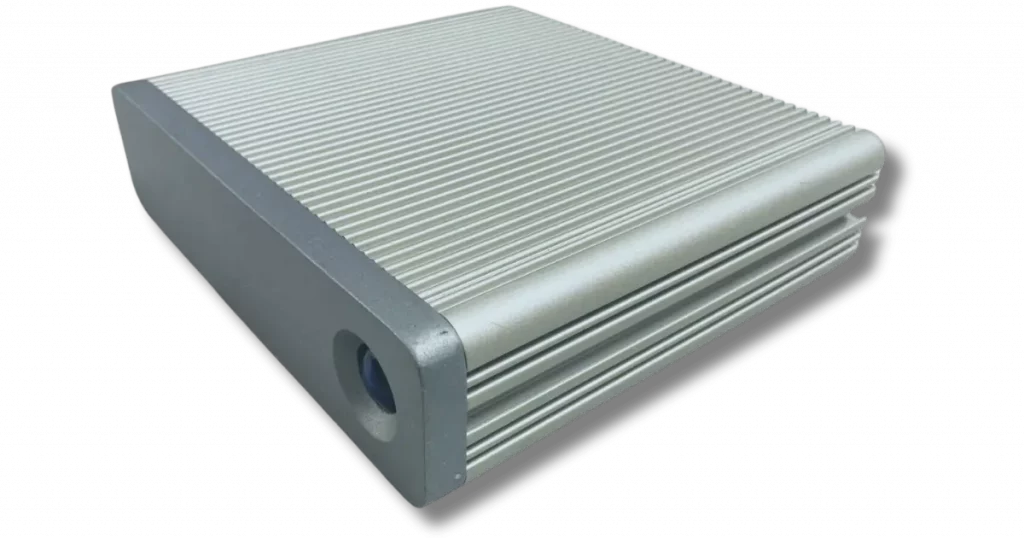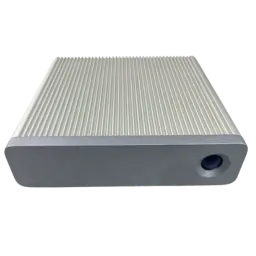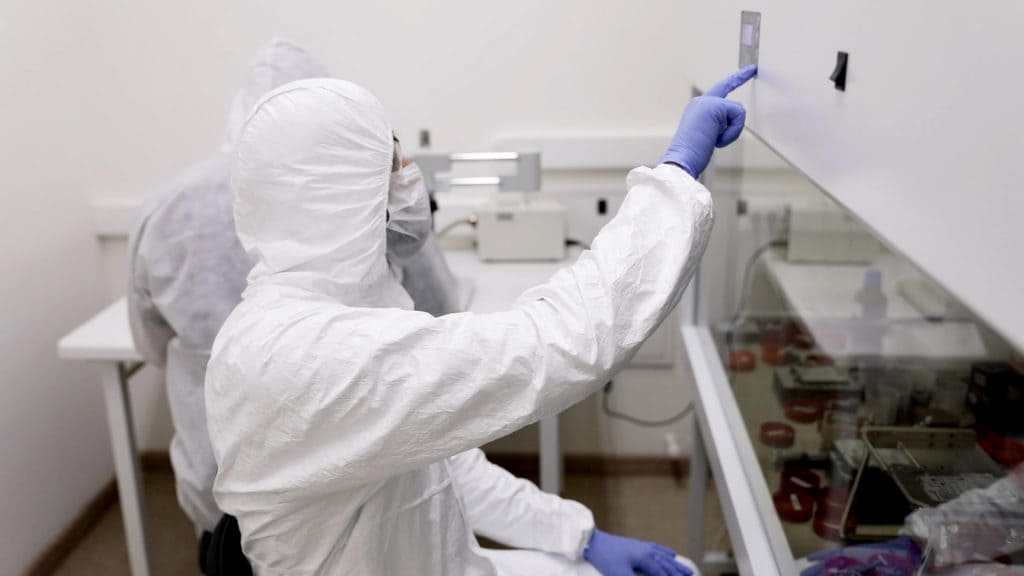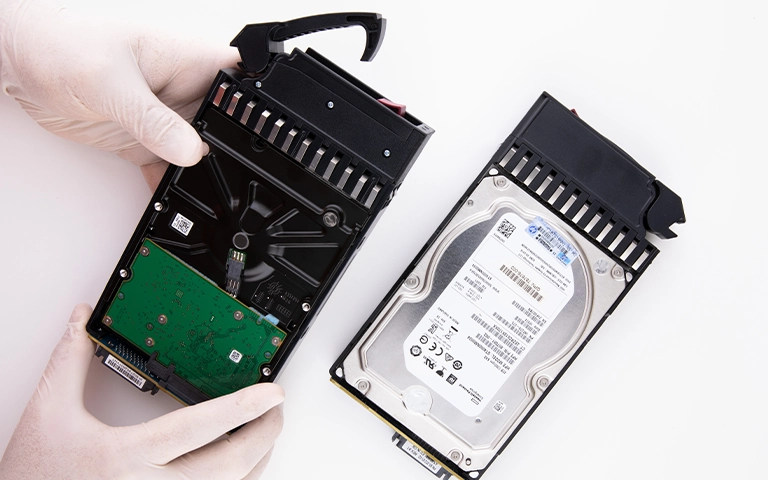A video production company in Maine contacted us after its LaCie d2 Quadra running RAID 0 was no longer recognised by the workstation. The unit was central to day-to-day operations, holding active edit files, large project media and routine backups.
When the team attempted to ingest new footage, the workstation failed to detect the device. Several machines showed the same behaviour, with no sign of the volume. Production stalled immediately, and the company lost access to critical project assets required to keep deadlines on track.

Client Situation: LaCie RAID 0 Failure
The LaCie d2 Quadra was set up in RAID 0, striping two drives to maximise throughput and capacity. This configuration suits video editing and animation workflows but provides no redundancy. If a single drive fails, all data becomes inaccessible.
In this case, both disks appeared healthy, yet the workstation did not recognise the device on any port. The behaviour pointed to a likely enclosure issue, such as a faulty controller or corrupted firmware, rather than a simple cable or port fault.
With immediate access blocked, active video projects were at risk and the production schedule faced material delays. Our LaCie d2 Quadra data recovery process began with isolating the drives from the enclosure to validate media integrity before planning the next steps.
Troubleshooting Attempts Before Engaging Specialists
Before contacting us, the team worked through common remediation steps from the vendor’s guidance:
Tried multiple workstations: Tested the LaCie d2 Quadra across different machines and operating systems. None recognised the volume.
Replaced cables and PSU: Swapped FireWire and USB leads and used an alternative power adaptor to rule out connectivity or power faults.
Performed a firmware reset: Followed LaCie’s online procedure, but the enclosure remained unresponsive.
Ran third-party scans: Used several detection utilities. No RAID volume was found and the individual member disks were not enumerated.
After repeated failures, the client recognised that RAID 0 recovery is inherently high risk if mishandled. Attempting ad-hoc rebuilds or writes can permanently compromise stripes and parity alignment.
For background on why this happens and how to avoid irreversible loss, see our guidance on RAID rebuild data loss risks.

Our LaCie d2 Quadra Recovery Process
Once the unit reached our lab, we executed a controlled workflow designed to protect data integrity and shorten time to handover.
We inspected the LaCie enclosure for controller and interface faults, then tested each drive independently to confirm baseline health.
Using dedicated imaging hardware, we created sector-by-sector clones of both member disks to preserve the original state.
We reconstructed the array in software by analysing metadata to determine stripe size, disk order and any offsets.
Our engineers repaired damaged file system records and reinstated directory structures so folders and project paths were accessible.
The client reviewed sample folders and key project files remotely to validate completeness and integrity of video and animation assets.
Every stage aligned with our internal RAID troubleshooting protocol to avoid writes to source media and eliminate the risk of overwriting stripes during recovery.

Remote Verification and Recovery Success
Following the virtual rebuild, our engineers completed full LaCie d2 Quadra data recovery, retrieving all edit projects, animation assets and supporting media. We organised the output for a secure remote review so the client could validate folder structures and open key files from their office.
This remote sign-off accelerated decision making and avoided unnecessary site visits, keeping the production schedule on track.
Once approved, we exported the verified data to a new storage device and confirmed read/write integrity, restoring the team’s workflow without further disruption.
Fast turnaround times for business-critical data
Lessons Learned for RAID 0 Users
RAID 0 delivers speed and capacity but offers zero fault tolerance. As this case shows, a minor controller or enclosure fault can render the entire array unreadable.
To mitigate permanent data loss, follow these practices:
Keep versioned backups of all active projects on a separate storage system.
Do not use RAID 0 for long-term or sole copies of production data.
Monitor drive SMART health and enclosure or controller behaviour regularly.
Seek professional support immediately if the array is not recognised or shows intermittent detection.
For a broader overview of common failure scenarios and prevention tactics, see our article on the most frequent reasons for RAID data loss.

Need help with LaCie d2 Quadra recovery?
If your LaCie d2 Quadra or any RAID 0 array is not recognised or has stopped responding, involve a specialist before further attempts risk data loss.
Our engineers specialise in LaCie d2 Quadra data recovery and manage complex enclosure, controller and drive-level faults with disciplined, write-blocked workflows.
Whether you are safeguarding video projects, design assets or business archives, we will assess the failure, explain the recovery plan clearly and proceed only with your approval.
Contact RAID Recovery Services to book an expert evaluation and restore access to your files safely.
Trust the experts with proven results
Frequently Asked Questions
Why is my LaCie d2 Quadra not recognised by my computer?
Typical causes include a failed controller board in the enclosure, damaged or incorrect cables/adaptors, power irregularities, or corrupted RAID metadata. Less commonly, enclosure firmware faults prevent the volume from mounting.
Can I recover data from a LaCie RAID 0 that stopped working?
Often yes, provided both member drives are readable. The safe route is to image each disk with write blockers, then reconstruct the array virtually to restore access.
Should I try recovery software for a failed LaCie RAID 0?
No. Running software against a degraded RAID 0 risks writes that can alter stripes and destroy recoverable data. Engage a specialist to avoid irreversible loss.
How long does professional LaCie data recovery take?
Timeframes depend on drive health, capacity and the extent of corruption. Most LaCie d2 Quadra data recovery cases complete within a few business days after evaluation.
Can you perform remote verification after recovery?
Yes. We offer secure remote verification so you can review folder structures and open sample files from your location before final handover.